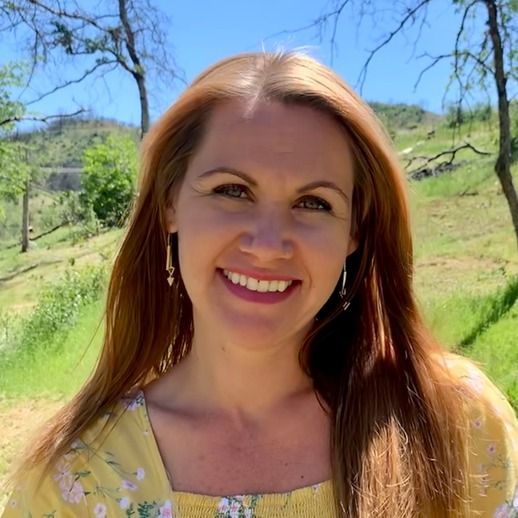Helping Our Kids Through Tragedy

Unfortunately, many children face tragedy in their lives. As much as we want to protect them, there are some things we cannot prevent.
Our family experienced this first-hand in 2018 when we lost our home in a California wildfire. We lost everything we owned and were homeless. Our young children felt such loss and grief from losing the things that were so special to them and the upheaval of our whole lives. Although I wanted to protect our children from the pain we experienced, we instead used the tragedy as a catalyst for growth, resilience, connection, and thankfulness.
As a parent and parenting coach, I have seen the importance of walking hand-in-hand with our children through difficult times. Parent coaches can act as compassionate guides who can support families with strategies and resources while parents help their children process what’s happening. All families will have unique experiences and challenges, and the personalization of coaching can greatly benefit both the parents and children as they cope.
I truly hope this kind of tragedy is not something your family has to face, but if it is, I hope these ideas will help you and your children process it. These ideas aren’t meant just for those who suffer a natural disaster like our family; they can be used to support our children through many kinds of tragedy and trauma.
Parent as close to normal as life will allow
Kids thrive with routine and normalcy. The more we can stick to that, the better. In the weeks following the fire, our kids still participated in their activities and sports. We still held boundaries and tried to do life like usual. There were times, of course when the world seemed to stop because of the grief and pain. We allowed for those moments to just be, without judging or needing to fix them.
Sticking to routines while being flexible enough to adapt can be difficult when parents are also dealing with tragedy or trauma. Having the
guidance of a parent coach can serve as the support system a parent needs to parent the best they can in a difficult situation.
Resilience
Resilience is our ability to tell stress we know how to handle it. While we are in the middle of grief or suffering pain from trauma, it is difficult to see the other side. The side where we are stronger. But it is there. We can empower our children to know they are capable of experiencing grief and becoming a stronger person because of it.
Know what to expect
When we know what to expect, we are better equipped to help our kids when they experience the effects of tragedy or trauma. Kids (and adults) who experience trauma can have trouble sleeping, depression, behavior issues, nightmares, regression, trouble eating, and many other physical and emotional expressions.
These are the kinds of behaviors that cause many families to seek help from a parent coach or therapist. Coaches can help parents with strategies and ideas to help their children through the difficult process. Additionally, kids will often have a different experience based on their age. Coaches can provide insight into age and stage development that can impact how parents support their children.
Provide healthy outlets
There are healthy and unhealthy ways to cope with our emotions. Families often seek help from parenting coaches when their children begin to use unhealthy outlets. These can range from hitting and yelling to drinking and reckless driving.
We want to ensure that our kids use healthy coping mechanisms and outlets. Little kids may want to draw out their pain or feelings. Older kids may need to talk or have time to themselves. Whatever coping outlet your child needs can be supported and modeled by us.
Emotion coaching
Kids may not have the words to express how they feel. Being attuned to them and helping them name what they could be feeling can help build their emotional intelligence and understanding of what’s going on inside them.
In addition to naming the emotion, we can give them tools to manage the more uncomfortable feelings. Adults can struggle with this as well, especially during difficult times. When coaches work with parents, we typically help the parents learn to label and manage their own feelings and have empowered parenting conversations so they are better able to help their children.
Model your own healing
Our children look to us for so much. We can allow them to see us be sad, frustrated, or angry and see how we manage those feelings. Not only should they see us experience our own feelings, but they need to see us on our path of healing and growth. Working to heal and empower ourselves will only benefit our kids and families.
Open communication
Reflect back on what your children share and let them know you are there to hear everything they have to say about the situation. Listen without trying to solve the problem, and let your kids know you are a safe place to share their feelings.
Since this can be difficult when parents are also overwhelmed or experiencing grief, the support of a coach can be incredibly helpful. Parent coaches can help parents learn age-appropriate communication skills to help kids feel safe to express what they feel.
Make a plan for the future
In our case, our kids healed during the rebuilding process. Looking to our future was healing for them. Additionally, we made plans for if something like this happened again.
Kids feel safe when they feel prepared. If your tragedy is something like a natural disaster, your family can create an emergency plan. In any case, talking about security and safety in the future can help kids stay hopeful for healing and decrease pain.
Know when to seek professional help
Trauma and tragedy can be a catalyst for mental health problems. If you or your children experience depression, anxiety, or any other mental health issues, please reach out to a licensed therapist for help. We want our kids to know it is healthy to ask for help.
All kids will respond to tragedy or trauma differently. As parents, just being there for them is often the best thing we can do. We can listen. We can instill resilience. We can get them the emotional tools they need. More than anything, we can instill the value of hope. Hope to overcome the hard things in life. Hope for a brighter future. Hope for healing.
Meet Your Author, Emily Scott, PhD
Emily is a Jai Certified Parenting Coach and runs
Renewed Hope Parenting. Her hope is to be the support and empowerment for parents who are dealing with the same overwhelming, joyous, messy, chaotic, and amazing parts of parenting. She enjoys being with her husband, three kids, their dogs and cat, and doing anything outdoors.
emily@renewedhopeparenting.com
renewedhopeparenting.com
Share This Article:
Curious for more?














